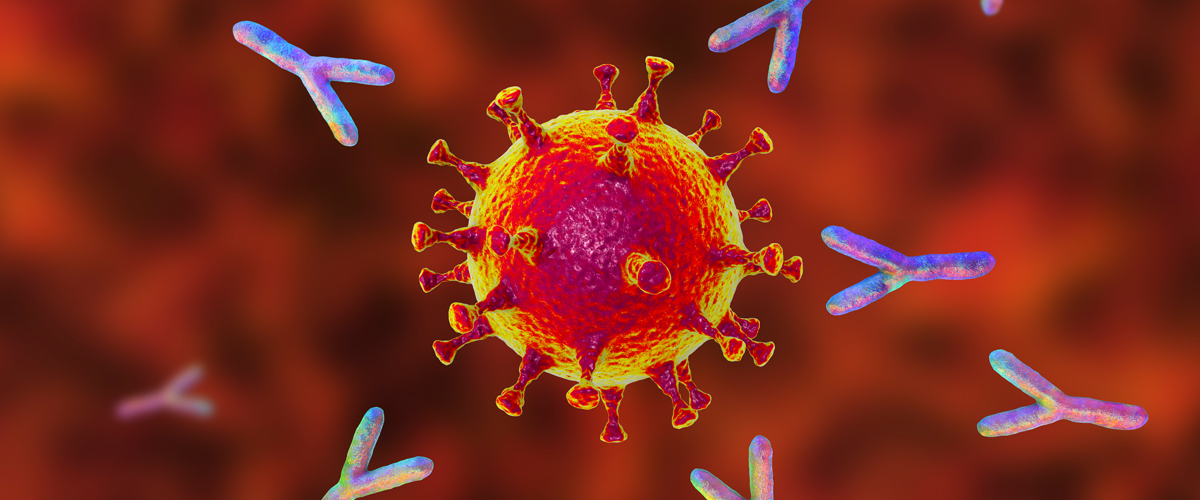Parents often worry about how they can strengthen their children’s immune system. Various disease-causing agents – microbes, toxins and harmful bacteria – are present in children’s natural environment. However, children usually have an amazingly strong immune system, better even than that of most adults.
Let’s take a look at what the immune system is. It is a complex network of tissues, cells and organs that work hard every day to protect the body from a variety of threats – viruses, bacteria or toxins. Some theories support the idea that our body has a built-in ability to heal itself, and all of these amazing benefits are due to the immune system.
How does the immune system work?
The human immune system is made up of two main parts – the innate immune system and the adaptive immune system. These two parts work together to protect the body from infections and other harmful factors.
Innate immune system:
- This is the body’s primary response to infections and invading disease-causing agents.
- The innate immune system is immediate and nonspecific, meaning it does not recognize the specific pathogens that attack the body.
- It involves barriers such as the skin and tear sheaths. Phagocytes (cells that destroy foreign invaders) are also part of it.
- The innate immune system activates inflammatory responses that are triggered by infection or injury.
Adaptive immune system:
- This part of the immune system is more complex and specific.
- The adaptive immune system creates antibodies and t-cells that target specific pathogens and destroy them.
- It stores the memory of infections that have been fought, allowing for a faster and more effective response to future illnesses.
These two systems work closely together to protect the body. The innate immune system is the first line of defense that is activated when outside agents attack the human body. The adaptive immune system then “learns” and retains information about infections the body has dealt with in the past and can mobilize more quickly and more effectively in the face of future threats. This cooperative work of the innate and adaptive immune systems is essential for maintaining health and fighting disease and infection. However, like any system in the body, sometimes the immune system needs support.
Natural approaches to support the immune system
Parents can strengthen their children’s immune system with the help of natural medicine and the latest scientific discoveries in the field of nutritional supplements. Certain herbs and vitamins are natural remedies for dealing with viral infections and provide powerful support to the immune system.
- Vitamin D – supports bone health and the immune system
Vitamin D is one of four fat-soluble vitamins that are important for the body (the others include vitamins A, E and K). Vitamin D is obtained through three main dietary sources: food, supplements and with the help of sunlight. Some food sources include oily fish and certain types of mushrooms. Dairy products are often fortified with vitamin D, as are other processed foods such as breakfast cereals.
This vitamin has several major important functions in the human body, including maintaining healthy bones and a strong immune system. This vitamin can improve the function of white blood cells, which protect us from viruses and other pathogens. It is important to keep our vitamin D levels within a normal range as deficiency can make us more susceptible to illnesses such as upper respiratory tract infections, including influenza and asthma.
- Zinc – supports the thymus gland
Zinc is one of the most abundant minerals in the body and has over 100 functions, including acting as a cofactor for many important metabolic pathways. One of zinc’s most important tasks is maintaining the immune system’s defenses. This important mineral acts as a cofactor that helps enzymes create thymus hormone, stimulating the function of the thymus gland.
The thymus gland is key to the normal state of our immune system. It tells a group of white blood cells called our T cells what to “fight”. This function of the thymus gland prevents the body from attacking itself, allowing the white blood cells to attack only viruses and other pathogens. Zinc is available in many forms including tablets, capsules and lozenges.
- Vitamin C – the key to immunity
Vitamin C is a water-soluble compound that is key to the functioning of our immune system. This vitamin maintains the health and resistance of physical barriers against infection, including our skin. It helps immune cells generate oxidants – chemicals that immune cells use to kill viruses/bacteria.
Vitamin C, like zinc, also plays a role in “educating” our immune system. It “teaches” immune cells to recognize disease-causing pathogens and effectively neutralize them. Research also suggests vitamin C intake helps prevent infections in the future and acts prophylactically.
- Elderberry extract – antiviral and antibacterial agent
Elderberry, or Sambucus nigra, is a plant that is mostly recognized by its small dark clusters. Elderberry is known for its antiviral and antibacterial properties. Elderberries are high in vitamins and minerals, including B vitamins, which are known to support the immune system, as well as zinc and magnesium. Other components include antioxidants, which are known to fight pathogens such as viruses and bacteria. Some studies have shown that taking elderberry extract can shorten the duration of illness from viral infections.
- Curcumin – fights inflammation
Curcumin or Curcuma longa is an extract derived from the popular spice turmeric. Its main functions are to support immune system health and act as an antioxidant.
This bioactive component of turmeric not only has anti-inflammatory properties, but can also be described as a “communicator” between different parts of the immune system. Curcumin acts as a regulator of inflammatory processes in the body. It helps the immune cells “figure out” where their activity is most needed and limit the inflammatory response in other areas. This is especially important as chronic inflammation can be harmful to the body and lead to a variety of diseases.
- Echinacea – a powerful antioxidant
Echinacea is a plant that is part of the daisy family. Echinacea, like vitamin C, is another popular immune defender. This powerful little plant offers a host of beneficial properties, including stimulating the innate and adaptive parts of the immune system. The herb has antioxidant, antiviral and antibacterial effects on the body.
Echinacea is available in many forms including sweetened tablets, chewable tablets, pills and teas.
- Licorice root – supports macrophage cells
Licorice root contains an active component called glycyrrhiza. This chemical component present in the root of the plant has a positive effect on the immune system. Specific parts of the immune system are complemented by a variety of specialized immune cells – macrophages. Macrophages are an important part of the innate immune system and are known for their ability to “gobble up” anything that may be harmful to the body. Glycyrrhiza plays an important role in stimulating macrophages. This stimulating effect can help the immune system be more effective in fighting infections and maintaining the body’s health.
- Garlic – an immunostimulating spice
Garlic is widely used in various cuisines around the world. It is considered an immunomodulator that can support both innate and adaptive immune cells, including macrophages and lymphocytes. This type of support can encourage these cells to be more efficient in their functions, including the destruction of various viruses and bacteria.
References:
- Catanzaro M, Corsini E, Rosini M, Racchi M, Lanni C. Immunomodulators Inspired by Nature: A Review on Curcumin and Echinacea. Molecules. 2018;23(11):2778. Published 2018 Oct 26. doi:10.3390/molecules23112778
- Prietl B, Treiber G, Pieber TR, Amrein K. Vitamin D and immune function. Nutrients. 2013;5(7):2502-2521. Published 2013 Jul 5. doi:10.3390/nu5072502
- Ali NS, Nanji K. A Review on the Role of Vitamin D in Asthma. Cureus. 2017;9(5):e1288. Published 2017 May 29. doi:10.7759/cureus.1288
- Saper RB, Rash R. Zinc: an essential micronutrient. Am Fam Physician. 2009;79(9):768-772.
- King JC. Zinc. In: Shils ME, Shike M, editors. Modern Nutrition in Health and Disease. 10. Philadelphia, Pa: Lippincott Williams & Wilkins; 2006. pp. 271-285.
- Wessels I, Maywald M, Rink L. Zinc as a Gatekeeper of Immune Function. Nutrients. 2017;9(12):1286. Published 2017 Nov 25. doi:10.3390/nu9121286
- Carr AC, Maggini S. Vitamin C and Immune Function. Nutrients. 2017;9(11):1211. Published 2017 Nov 3. doi:10.3390/nu9111211
- Krawitz C, Mraheil MA, Stein M, et al. Inhibitory activity of a standardized elderberry liquid extract against clinically-relevant human respiratory bacterial pathogens and influenza A and B viruses. BMC Complement Altern Med. 2011;11:16. Published 2011 Feb 25. doi:10.1186/1472-6882-11-16
- Roschek B Jr, Fink RC, McMichael MD, Li D, Alberte RS. Elderberry flavonoids bind to and prevent H1N1 infection in vitro. Phytochemistry. 2009;70(10):1255-1261. doi:10.1016/j.phytochem.2009.06.003
- Tiralongo E, Wee SS, Lea RA. Elderberry Supplementation Reduces Cold Duration and Symptoms in Air-Travellers: A Randomized, Double-Blind Placebo-Controlled Clinical Trial. Nutrients. 2016;8(4):182. Published 2016 Mar 24. doi:10.3390/nu8040182
- Liu Z, Zhong JY, Gao EN, Yang H. [Effects of glycyrrhizin acid and licorice flavonoids on LPS-induced cytokines expression in macrophage]. Zhongguo Zhong Yao Za Zhi [China Journal of Chinese Materia Medica]. 2014. 39(19): p. 3841-3845.
- Arreola R, Quintero-Fabián S, López-Roa RI, et al. Immunomodulation and anti-inflammatory effects of garlic compounds. J Immunol Res. 2015;2015:401630. doi:10.1155/2015/401630

